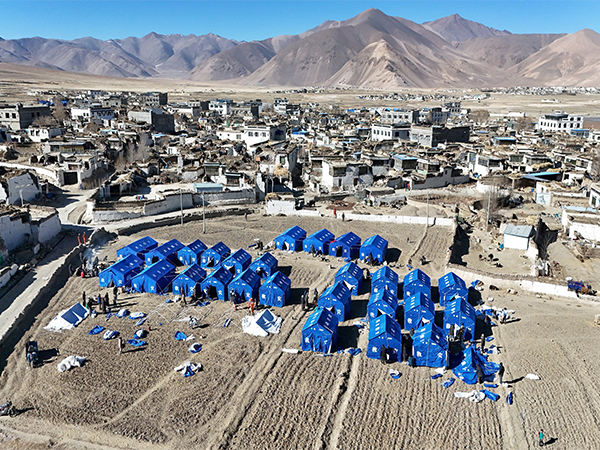Afghanistan: 13 Hazara killed by Taliban in Daykundi province
Oct 06, 2021

Daykundi [Afghanistan], October 6 : Taliban forces unlawfully killed 13 ethnic Hazaras, including a 17-year-old girl, in Afghanistan's Daykundi province, a right group has said.
The killings happened in Kahor village of Khidir district on 30 August. Eleven of the victims were former members of the Afghan National Defence Security Forces (ANDSF), and two were civilians, a new investigation by Amnesty International has revealed.
According to eyewitness testimony gathered by Amnesty International, the Taliban extrajudicially executed nine of the ANDSF members after they had surrendered, killings that appear to be war crimes. Two civilians were killed as they attempted to flee, including a 17-year-old girl shot when the Taliban opened fire on a crowd of people.
Amnesty International verified photographs and video evidence taken in the aftermath of the killings, and identified the location of Kahor village, where they happened.
"These cold-blooded executions are further proof that the Taliban are committing the same horrific abuses they were notorious for during their previous rule of Afghanistan," said Agnes Callamard, Amnesty International's Secretary-General.
"They repeatedly violate the rights of those they perceive as their adversaries, even killing those who have already surrendered. The Taliban say they are not targeting former employees of the previous government, but these killings contradict such claims," Callamard said.
Verifying human rights abuses committed by the Taliban since they took control of Afghanistan in August 2021 has proven difficult, as the group have cut mobile phone service in many regions. Shortly after the fall of Kabul, Amnesty International documented how Taliban fighters massacred nine ethnic Hazara men after taking control of Ghazni province.
The Taliban took control of Daykundi province on 14 August. An estimated 34 former ANDSF members initially sought safety in Khidir district, and had government military equipment and weaponry with them. They then agreed to surrender to the Taliban as the group established its authority over vast swathes of the region.
Mohammad Azim Sedaqat, who was leading the surrender, arranged to decommission the group's weapons in the presence of the Taliban. On 29 August, the men negotiated to surrender fully to the Taliban.




















